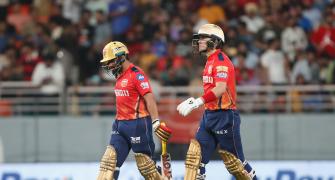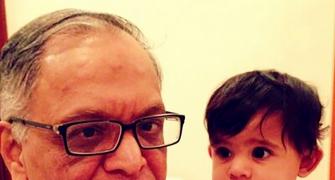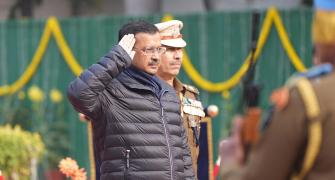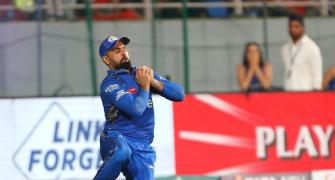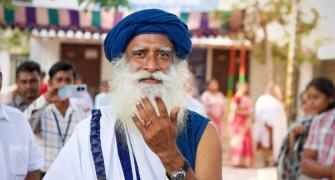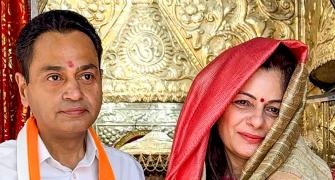Nasreen Munni Kabir is best known for her documentary called The Inner/Outer World Of Shah Rukh Khan.
Kabir, who is the governor of the British Film Institute, has directed several documentaries on Hindi cinema and has also authoured the book, Guru Dutt: A Life in Cinema and Talking films and Conversations with Javed Akhtar.
On October 16, Javed Akhtar launched her latest book, The Immortal Dialogue of K Asif's Mughal-E-Azam in Mumbai. Released in 1960, Mughal-E-Azam starred Prithviraj Kapoor, Dilip Kumar and Madhubala.
Kabir spoke to Syed Firdaus Ashraf about her new book, which is priced at Rs 1,500. Excerpts:
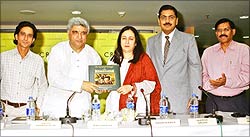 Why a book on Mughal-E-Azam's dialogues?
Why a book on Mughal-E-Azam's dialogues?
The dialogues of Mughal-E-Azam are great. You will not get these dialogues in any Hindi film. Amanullah Khan, Ehsan Rizvi, Kamal Amrohi (who directed Pakeezah) and Wajahat Mirza have written this film, and they have made this film an epic because of the dialogues.
For example, if you ask any of today's youngsters, 'Anarkali, Salim tumhe marne nahin dega aur hum tumhe jeene nahin denge (Anarkali, Salim will not let you die, and I will not let you live).' They will immediately say that this is from Mughal-E-Azam. That is its impact.
How long did it take you to write the book?
18 months. In fact, I was working on the book until last week. The film is long and I have seen it many times. I have not missed a single word in the book. Even if Emperor Akbar is saying 'takhliya' (disperse) I have included that in the book.
How difficult was it writing this book?
Very difficult. It is written in three languages -- Hindi, Urdu and English. The film's original text is Urdu and I had to write in Hindi and then in English. Roman scripts, accompanied by translation, was very difficult. I saw the film many times. Sometimes, I took a break, and watched the film after a month again so that I did not make any mistakes.
Do you think the younger generations will be interested in this book?
The younger generations and the third generations of Indians in the US and UK are interested in Mughal-E-Azam. They love the film and the dialogues. If one reads the book, you will understand the beauty of Urdu.
Do you think people like reading books today?
In the last five years, many Indian writers have written on Indian films and film personalities. This culture is prevalent in West but in India, it has started only in the last five years. No one knows what will happen 100 years from now. If you go to any library, you will find people reading old manuscripts. After 100 years, everything might be on Internet but I feel people will always want to read (books).
What other film dialogues would you like to write a book on?
That's a tough question. I think it would be Sholay, Deewar, Mother India and Pakeezah. They come close to Mughal-E-Azam but cannot match it.
What about contemporary films?
Lage Rao Munnabhai. After 30 years, someone may write a book on this, you never know!

